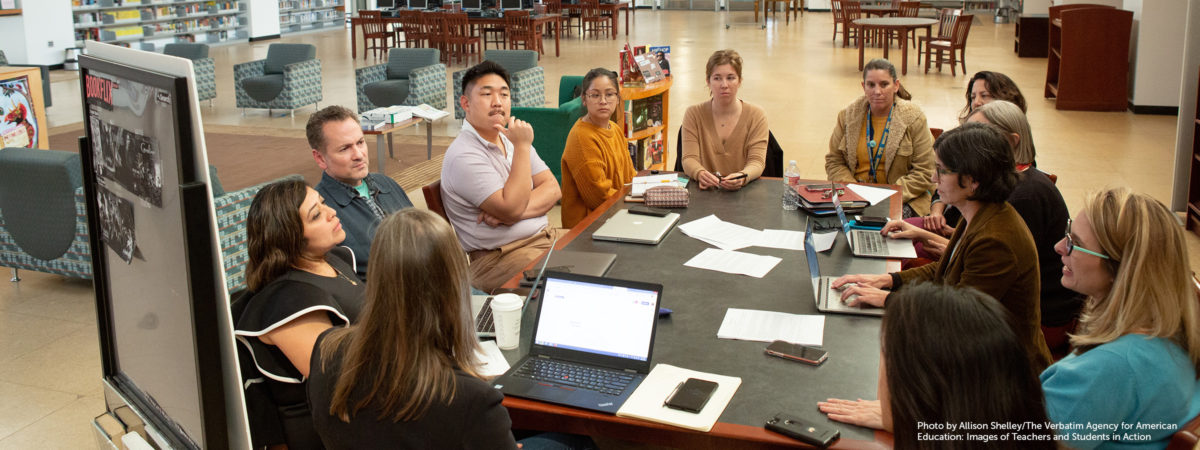
April 15, 2021 | By Mahsa Bakhshaei
Only 41 percent of fourth graders—and worse, 34 percent of eighth graders—are proficient in math. Proficiency rates for Black and Latino students and students experiencing poverty are considerably below the national average. As a foundation for all STEM disciplines, low math proficiency limits access to economic opportunity, and the failures of the current K-12 education system disproportionately impact students of color. For example, although Black, Latino, and Native American students comprise 40 percent of the public high school enrollment and more than 17 percent of college degree holders, they are just 13 percent of working scientists and engineers.
To help address this gap, Digital Promise has received a five-year U.S. Department of Education grant to support the Instructional Coaching for Tech-Enhanced Approaches in Mathematics (iCoachTEAM) project. With our partners, Instructional Coaching Group, Heza LLC, and SRI International, our team will design, implement, and evaluate a school-based, one-to-one teacher coaching program to improve the quality of middle school mathematics instruction through meaningful use of technology. We are partnering with two districts, Portland Public Schools in Oregon and Octorara Area School District in Pennsylvania, who are committed to co-designing equitable solutions to support students from groups who are underrepresented in STEM, including those who identify as Black, Latino, or low-income.
This project is inspired by the Dynamic Learning Project (DLP), a three-year initiative to increase educational equity and impactful use of technology through instructional coaching. The DLP reached 163 schools in 32 school districts across 10 states and supported school-based instructional technology coaches with mentoring, professional development, and continuous improvement data. We found that teachers who received DLP instructional coaching, compared to their peers who didn’t, used technology more frequently and in more impactful ways with their students—which, according to teachers, resulted in increased student engagement and learning.
While these findings suggest that coaching can be highly effective in educators’ use of technology, we also learned that challenges remain in many schools and districts. Too often a system that supports coaching for meaningful technology use is inconsistent at best and sorely lacking at worst. This is especially true when it comes to mathematics. Most of the DLP instructional technology coaches, regardless of their background, reported that mathematics was the most challenging subject for them to support.
Merely helping math teachers of high-need students to use technology is not the point; to achieve high-quality math instruction, teachers need to apply technology to engage those students in more challenging and innovative tasks, to support their efforts to make sense of mathematics, and to adapt instruction to students’ individual needs. We’re excited to start on this collaborative journey!
To stay connected about iCoachTEAM and related projects, sign up for our professional learning newsletter.
Update: As of September 2021 two new districts have joined (Bristol Township School District and Sioux Falls School District). Octorara Area School District is no longer a partner in this project.
By Sharin Jacob and Quinn Burke
By Dr. Kyle Dunbar and Katie Wilczak